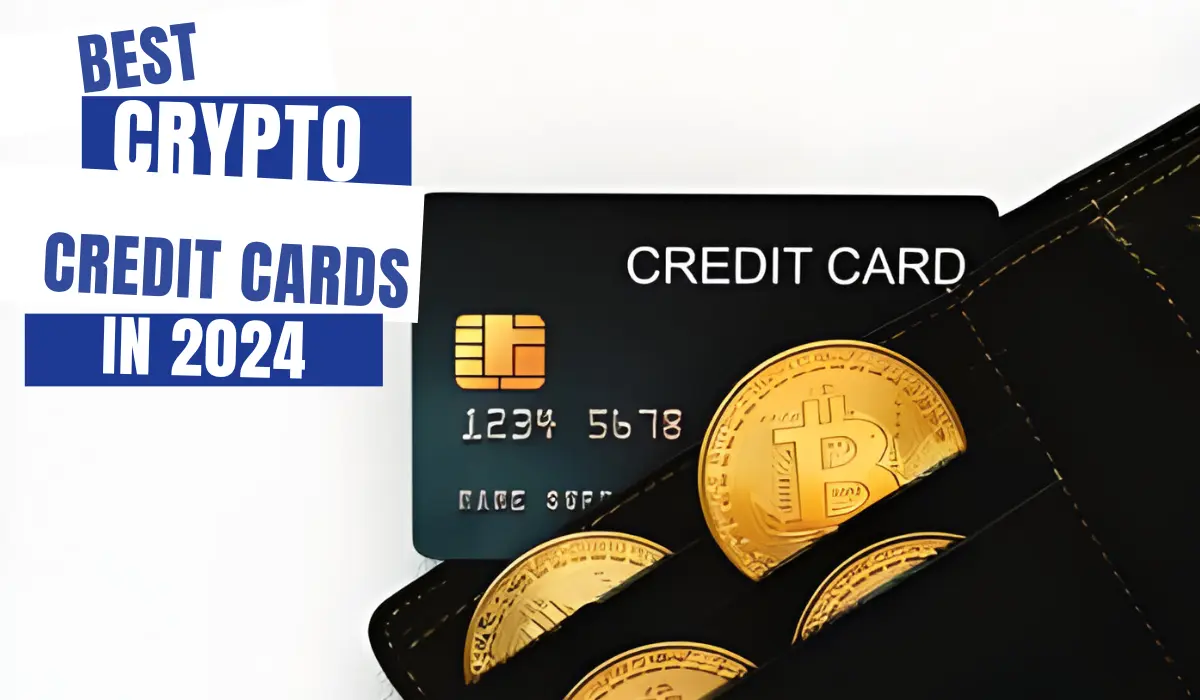What comes to mind when you hear ‘Credit Cards’? I’m not talking about credit card debts or frauds, but the basic concept.
It is the same for crypto credit cards as well. Just like traditional credit cards, you will earn rewards as you spend using the card, but with cryptocurrency instead of fiat currency.
Now, let’s talk about some of the best crypto credit cards of the year.
Crypto Credit Cards: A Brief History
Crypto credit card is a fairly new concept. The history of crypto credit cards starts with BlockFi, the first cryptocurrency-based credit card launched by Flori Marquez and Zac Prince in October 2017.
Although the firm collapsed five years later, it paved the way for those who came after. In conclusion, the whole history dates back to only half a decade ago.
Even today, crypto credit cards are not that widely used. Some major companies like PacSun, Newegg.com, JomaShop, Dish TV, and Microsoft do accept crypto credit cards, but not everyone is interested in replacing fiat currency transactions with crypto.
There are mechanisms like BitPay Card that propose a solution to this acceptance issue, but we are still not sure about the practical side of it.
How do Crypto Credit Cards work?
On purchases, a crypto credit card rewards the user with cryptocurrency instead of cash back or points.
Crypto credit cards are co-branded, issued by a bank, and marketed by a brand, usually a cryptocurrency exchange or an investment company.
The bank issues the user a line of credit that you can spend throughout your billing cycle, and pay them off at the end.
The crypto rewards you earn as you spend will automatically credited to your crypto account. Each crypto card comes with a preset range of cryptocurrencies that gives you choices.
The type of crypto token depends on the choice you make and what’s available on the card.
Crypto credit cards, like regular credit cards, do not spend from your current fund, but from a borrowed fund issued by the lender.
The amount you receive as a reward is usually influenced by the market value of the coin at the time of the transaction.
Also, the crypto credit card application is just as easy as the regular credit card application, if not easier.
Simply visit the website of your preferred network, follow the instructions given, and there you have it! Most of the crypto credit card platforms, with a mobile application, send a virtual card first to the app, after which you can apply for a physical card if necessary.
Best Crypto Credit Cards of 2024

Now that you have an understanding of the nuances of the cards, take a look at two of the best crypto credit cards of 2024 here.
Venmo credit card
A Venmo credit card is not exactly a crypto credit card as per the definition, but a regular credit card that allows the automatic conversion of cash rewards into crypto tokens.
The cash-back rewards of Venmo cards belong to three categories – 3% on the user’s top spending category, 2% on the second-best spending category, and 1% on all eligible purchases.
On Venmo, you can convert these cash-back rewards into Bitcoin, Ethereum, Litecoin, or Bitcoin Cash. Venmo does not charge a transaction fee or an annual fee but charges a spread depending on the amount of crypto the user earns.
Gemini credit card
Similar to Venmo, and unlike Crypto debit cards, the Gemini credit card does not spend in cryptocurrency but rewards users in crypto.
It leaves the choice of reward token to the user as they can pick one from the available list and change their preference as many times as they want.
The card uses the Mastercard payments network and will be sent to you in the digital format, and as a physical card, if opted. The reward category goes like; 3% on dining, 2% on groceries, and 1% on all other purchases.
Conclusion
Crypto credit cards are an interesting concept. However, they come with certain risks. They might have high staking requirements, comparatively higher transaction fees, and sometimes limited crypto support.
So, weigh the perks and drawbacks, be sure if this is what you want, and choose wisely.







